28 Signs of an Emotional Manipulator and How to Deal with Them
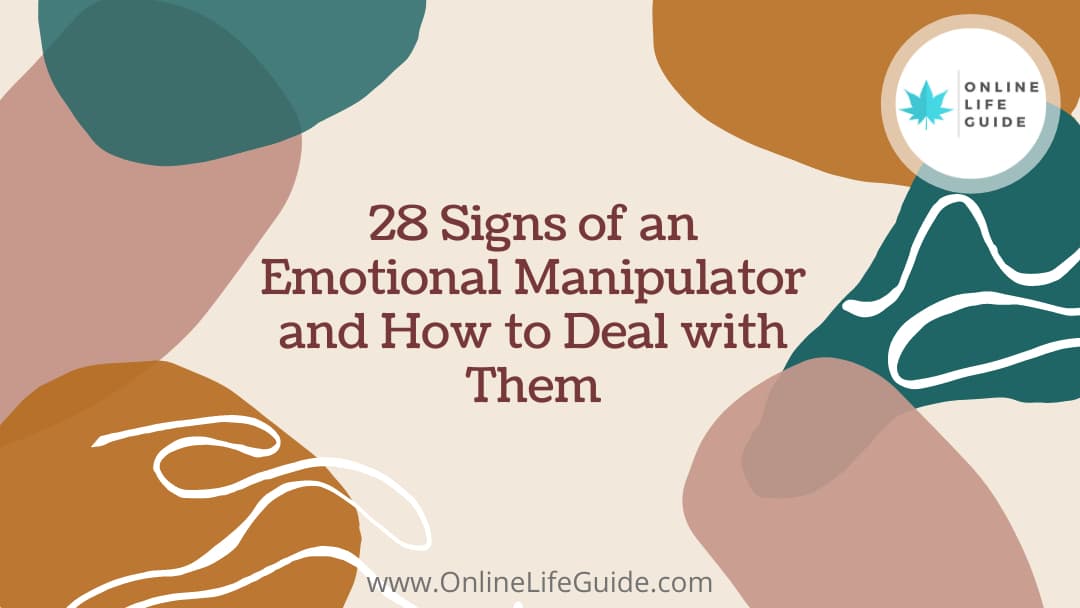
“A manipulative person is great at portraying a kind and generous image of themselves in public so that no one would suspect anything from them. But behind closed doors, it’s a different story. The people who live with them are not safe from their abuse and the worst part is, nobody would believe that this seemingly kind and generous person could do such a thing.”
Ahmed Faraz Khan
Emotional manipulation is not something alien or uncommon, and it doesn’t require someone to be psychopathic to be a manipulator. We are surrounded by people having manipulative tendencies all over. You might find manipulation within your intimate relationship, your friends, and even your family members.
In fact, don’t be surprised if you find some of the following signs of emotional manipulation within yourself as well.
Dealing with a manipulative person can be extremely draining and confusing, and can lead to self-doubt and lowered self-esteem. Emotional manipulation can often turn into emotional abuse, especially in close relationships.
It’s crucial that we have a clear set of strategies and tools to deal with them. But before we do that, we must be able to recognize a manipulative person since they are so good at hiding their true colors and shifting their behaviors at the flick of a switch.
People who are not aware and not prepared to deal with them, are often left confused and clueless as to what the problem is. They get conflicting signals from the manipulative person which can easily lead to an emotional roller coaster and exhaustion.
If you’ve stumbled upon this article, chances are that you might be dealing with manipulation, and wondering,
Am I being manipulated? How can I tell if I’m actually being manipulated?
In this in-depth guide, we’ll look into the signs of a manipulator so you can identify one when you see one, and how exactly you can deal with such manipulative people.
One thing I want you to keep in mind, as you read this guide, is that this guide is not meant to label anyone as “evil”. Most manipulators suffer from psychological disorders that they or the people around them never realize.
They may seem brilliant, charismatic, intelligent, and even high-achievers on the outside, yet deep down they are driven by deep insecurities, fear, and narcissistic tendencies. It’s a strong recommendation that such people seek therapy and psychological treatment for the sake of the quality of their lives and their relationships.
28 Signs of an Emotional Manipulator
Here are some of the signs and characteristics of a manipulative person. Some of them might be common and you might find some in yourself as well. But if you find more than 50 percent of these signs in someone, it’s highly likely that you are dealing with an emotional manipulator.
- Emotional manipulators are emotionally immature. No matter the age, they keep demonstrating childish behavior from time to time, such as throwing tantrums when things aren’t going their way, and getting angry or upset when someone doesn’t do what they want.
- Because of their emotional immaturity, manipulators are not very considerate when they speak. They’ll often say hurtful things, blatantly criticize, make fun of someone, or ridicule them without being mindful of how the other person would feel upon hearing such things.
- One of the strongest psychological tactics emotional manipulators use is Intermittent Reinforcement, which is basically rewarding the other person on a random basis. These randomly dispersed rewards from the manipulator may include attention, appreciation, expressions of love, sex, gifts, surprises, etc. but all of them are very unpredictable.
On other occasions, the manipulator will distance themselves and withdraw from the loving and generous behavior, leaving the victim confused with all this fluctuation, leading to an emotional roller coaster.
The victim never knows for sure when the manipulator is pleased with them, and when they’re displeased. This creates a sense of constant anxiety and uncertainty in the relationship, and a fear of losing him/her (the manipulator).
The manipulator also uses this tactic to subtly program the other person according to their liking. For example, rewarding them when they do something the manipulator wants and withdrawing from them when the other person doesn’t exactly do what he/she wants.
This results in the victim always trying to please the manipulator out of the fear of losing them or out of the wish to seek the reward i.e attention, appreciation, love, etc. This can be extremely draining and emotionally exhausting for the victim, taking a toll on their emotional well-being. - When you confront a manipulator with something, they’ll shift the entire focus of the conversation onto you, as if you are the actual problem.
They’ll push your buttons in such a way that you’ll lose your cool and have an emotional meltdown, while they themselves manage to stay cool and collected, making you look bad (this is what “emotional manipulation” is all about, isn’t it?).
Then they’ll divert all of the focus towards you to create a distraction from the actual issue you were confronting them about:
“See this is why things never work between us”
“You need to work on your anger issues”
“You see the difference between you and me right now, you see where the problem is?!”
“You overthink everything”
“It’s nothing like what you are suspecting, you have jealousy issues and you need to work on it.”
“I can’t deal with your baseless, illogical BS right now.
This is a form of gaslighting. We’ll come to that in a bit. - One of the strategies manipulative people use is to compare you with someone in a derogatory manner to create insecurity and to keep you on your toes. They often do that to put some pressure on you to perform better, so that you put more effort to serve and please them out of the fear of losing them to the other person that they keep comparing you with.
- Another tactic manipulators use to gain the trust of someone and to make the other person open up about their personal life and vulnerabilities, is that they themselves prematurely disclose their own personal life or vulnerabilities, making you feel obliged that since this person is sharing so much personal stuff about themselves, I too have to open up and let them know about my personal life and matters. You subconsciously do that to avoid feeling guilty or being unfair to the other person.
- They’ve never learned to respect boundaries. They might maintain and protect their own boundaries but won’t hesitate to step into someone else’s. They’ll freely comment on your life, your vulnerabilities, and your personal and professional matters. They’ll take your time and effort for granted. Sometimes they’ll deliberately disturb and distract you from an important task out of insecurity.
- They crave reactions, whether positive or negative. They’ll say provocative and irritating things that’ll get under the other person’s skin. On the other hand, they’ll give extravagant gifts or demonstrate generous behavior. They just want to get the reaction out of the other person. Again, this can be really confusing for the people around him/her.
- Emotional manipulators are not used to hearing NO or being rejected. They want everything and everyone to be their way, and won’t take No for an answer.
- They want to change and program people according to their own ways, but never willing to change themselves. They might tell you that they would change, or have changed, but it’s just a superficial act, and soon you’ll find that nothing has actually changed at all.
- Manipulators are selfish. They can often seem to be generous and giving, but there can be a hidden agenda behind being generous, most probably to have more control over you by indebting you with their favors.
- Emotional Manipulators have deep insecurities with regard to other people. They often try to prove themselves better than the other person while at the same time subtly trying to demean or disregard the other person’s achievements.
If they feel like someone is getting more attention and appreciation than themselves, then they try to take the attention away from the other person so that they themselves could become the center of attention.
- An emotional manipulator is co-dependent in their personal relationships, which means they are emotionally and psychologically dependent on the other person. They are overly attached and clingy in their relationships which most often leads to their relationships being toxic.
- Emotional Manipulators tend to blame others for their own misery, losses, failures, and mistakes. If they are unhappy and miserable, they’ll make the other person feel guilty, ashamed, and regretful about it.
- It’s hard for you to say No to them because you know that they won’t take no for an answer and won’t respect your boundaries and decisions. You feel the need to give them long, detailed explanations and excuses because you feel like they’ll try to convince or even force you to do something you aren’t willing to do.
- Manipulators use their charisma and charm to present a positive image of themselves in front of people so that no one suspects anything wrong with them. They are often so good at presenting their image that it makes you look bad if you say to someone that you’re having trouble with this manipulative person.
Because of this, people will often take their side instead of yours. - It’s common for a manipulator to show passive aggression and take indirect jabs at you. Indirect insults, bringing up things of the past, or indirectly criticizing your weaknesses, decisions, or mistakes.
- A manipulative person often believes that his perspective, opinion, belief, or approach is the best one. He thinks of himself as the most intelligent and superior over everyone else and so he’ll try to convince everyone else, often forcefully, to follow in their footsteps. He just wants to dominate every situation/person around him.
He’ll even go ahead to prove that you are dumb and that your opinion is wrong so that he could establish a superior stance over you. - They’ll make vague, often double-meaning comments or statements. When you confront them about it, they’ll tell you that you completely misunderstood their intentions and meaning.
An example would be sugar-coated insults that are said in a complimenting manner, such as:
“that’s a really good job for your level”
“you look quite slim today in these clothes”
- Manipulative people can often be bullies. They might use subtle bullying or even talk to you in an ordering tone to lower your self-esteem so that they can have more control over you.
- A manipulator is a very controlling person. They want to get what they want RIGHT NOW. They won’t even give the other person time to think.
This tendency can result in them being very pushy and dictator-like, creating a sense of pressure and urgency for the other person.
If they want something, they might repeat it like 10 times in a minute, often creating a sense of panic and pressure for the person who is being the victim of his/her manipulation and controlling behavior.
They simply don’t have patience. If they don’t get something they asked for on time, they’ll reject it when they do get it, and then show anger and resentment. Again, demonstrating very childish and immature behavior.
- During arguments or fights, an emotional manipulator will keep on talking and repeating the same things over and over until they get a reaction from you. They want you to respond right NOW.
Even if you tell them that “let’s drop the argument and calm down first for a few minutes, and then we’ll talk about it”, they simply won’t. They want your response right now.
They’ll cling on to an argument until it’s grown into a full-blown fight, and then they’ll blame you for creating such a big deal out of a “normal” argument. - Manipulators can use your conscience and your goodness to manipulate and control you. They’ll make you feel guilty if you don’t do something that they wanted you to do.
Since you are a “good” person, you’ll feel ashamed of something you shouldn’t be ashamed of and you’ll try to comply with the demands of the manipulator since it has now become a matter of proving your good character and kindness.
- They make empty promises, say sugar-coated words, and make you feel that they care. They’ll give an impression that they’ll be there for you when you need them, but you soon find that the reality is very different from what they say or promise. Their words don’t mean anything, and they know exactly what to say to get what they want out of the other person.
- Another childish behavior manipulators demonstrate is throwing a fit. Whenever they don’t get what they want or whenever you upset them in any way, they’ll throw a fit. It’s a strange sight to see a seemingly intelligent adult turn into a spoiled child in a split second.
- Gaslighting is a common habit of emotional manipulators. (Gaslighting is psychologically manipulating someone to question and doubt their own sanity).
Gaslighting manipulators will often tell you that nothing is wrong with them, it’s you who has got it all wrong and making a big deal out of a very petty thing.
They’ll manipulate you to think that what actually happened didn’t really happen, and that it’s all in your head. They’ll deny the reality and undermine your perceptions, which can lead you to question your own sanity.
Some common gaslighting phrases are:
“It’s all in your head.”
“You need to fix your memory, that never really happened.”
“You’re just imagining things. You are making up things out of thin air.”
“I don’t have a clue about what you’re saying.”
After trying to distort the reality they’ll even tell you that you have psychological issues and that you need to see a psychiatrist.
(Note: There’s a difference in someone being a well-wisher, who is genuinely trying to show you the truth or a different perspective of a certain situation, or even suggesting you see a therapist, psychiatrist, or a psychologist, versus someone who is doing it out of animosity or to prove a point. Make sure you don’t mix the two or paint everyone with the same brush.)
An example of gaslighting would be that a manipulator deliberately upsets the other person, and tries to get under their skin. When the other person reacts, the manipulator blames them for “overreacting” and “not being able to take a joke”, or completely denying their own hurtful words and actions.
- One of the manipulation tactics is prolonged silent treatment. This is when the manipulator completely ignores your existence and doesn’t respond to you when you try to talk to them. This silent treatment can often be torturous for the other person leading to the feeling of powerlessness.
- A manipulator will often invalidate your feelings, and opinions, and even make fun of your emotions and needs. Some common statements would be:
“You should stop taking everything so personally.”
“You can choose to feel whatever you want to feel, but it is not what you think it is.”
“I’m happy, why can’t you choose to be happy as well.”
“Stop getting upset over such small things. You’re too emotional.”
“You don’t need that right now, you can live without it.”
If such statements get repetitive and the other person is always denying your feelings, thoughts, and opinions, then it becomes a form of emotional manipulation.
7 Ways To Deal with a Manipulator
Know Your Basic Human Rights and Emotional Needs
A lot of times we are not even aware of our basic needs and rights, so we consider it “normal” when people invade our space, take advantage of us, ignore our feelings, invalidate our emotional needs and trample all over us.
Being aware of your emotional needs and human rights, and standing firmly by them is the first step towards taking the charge back and stop getting manipulated any further.
Here’s a short list of some of the rights and needs you should firmly stand by.
Basic Human Rights
- It’s your right to maintain your personal boundaries and space.
- It’s your right to take care of yourself, and take time out for activities that’ll keep you healthy mentally, physically, and emotionally.
- It’s your right to have your own social circle and participate in social activities of your choice.
- It’s your right to have independent opinions, perspectives, and choices.
- It’s your right to be treated with dignity and respect, and that your values and priorities are respected as well.
- It’s your right to decline to do something that is against your will, and saying “NO’ without giving excuses, long explanations, or feeling guilty.
- It’s your right to express your needs, wants, feelings, and thoughts.
Fundamental Emotional Needs
- To be listened to with sincerity
- To be understood
- To grow and progress
- To be loved and respected
- To feel safe, emotionally and physically
- To feel worthy and valued
- To live a purposeful life
- To be acknowledged and appreciated
- To have some certainty and clarity
- To actualize your capabilities and potential
- To feel supported
Enforce Healthy Boundaries
Now to protect your fundamental human rights and emotional needs you must set very clear boundaries and stand by them.
Manipulative people have a tendency to step too far into other people’s space and cross boundaries.
I have recently written an entire in-depth guide on How to Set Healthy Boundaries in a Relationship. If you have been struggling with setting boundaries and dealing with a person who constantly violates your boundaries, make sure to read this guide thoroughly:
How to Set Healthy Boundaries in a Relationship – An In-Depth Guide
Learn to Say NO Without Giving Long Explanations
In order to deal with a manipulator and set boundaries effectively, you must learn to say NO without offering a lot of excuses and explanations.
You don’t have to be apologetic for not doing something that is not your obligation. When we say YES under pressure, it often reflects that we don’t respect our own will and time enough.
Again, I have also written an entire guide on How to Say NO Without Feeling Guilty. If you’ve struggled to say NO and stand for your own time and priorities, you can read the guide here:
17 Tips To Say NO Without Being Rude Or Feeling Guilty
Stop Reacting Emotionally Towards Them
Knowingly or unknowingly, manipulators often seek some sort of emotional reaction from people so they can exploit their emotional vulnerabilities and weaknesses.
Manipulative people are very observant. They are great at figuring out the weaknesses, loopholes, and vulnerabilities of people. They know what clicks and what gets under the skin of a particular person.
In such a scenario, it’s better to not give them enough information to work with. Close off a bit. Detach and distance yourself emotionally from them. That is often the best for the sake of your own mental and emotional health.
Also, if you get reactive and they stay calm and composed, it will make you look bad and they will use it against you to show others that you are the actual problem.
Initially, you’ll notice that they’ll try harder to get a reaction out of you, but you hold your ground. After a while, they’ll know that their tricks aren’t working on you anymore. It’s a matter of who gives up first. If you stay consistent and composed, eventually they’ll give in.
Give Priority to Your Safety and Well-being
Emotional manipulation is extremely detrimental to mental and emotional health. If you are in a particularly manipulative relationship, seek your own safety and well-being first!
A manipulative person is great at portraying a kind and generous image of themselves in public so that no one would suspect anything from them. But behind closed doors, the story is different. The people who live with them are not safe from their abuse and the worst part is, nobody would believe that this seemingly kind and generous person could do such a thing.
Don’t hesitate to disengage from the situation and distance yourself from that person for the time being. It’s important that you get out of that situation and that mental/emotional state so that you can clear your head and think rationally about where to take things from here on.
Stop communicating with that person entirely for a few days, and don’t read their text or attend their calls. Just get a break from them and focus on getting your head clear and realign your compass. Allow your mind and heart to get some fresh air.
You must get out of their manipulative influence that is fogging your thoughts and blurring your decision-making process. Create some distance that will ensure your safety (both mentally and physically) and allow you the space to have some peace of mind.
Seek Help from a Specialized Professional
One of the biggest mistakes people make is not seeking professional help in their personal matters.
There are therapists and coaches out there who are specialized in helping you deal with family and relationship-related issues. They help people like you get unstuck and lead a better quality of life, day in and day out.
You don’t have to deal with this stuff alone. Seek a reputed therapist or a life coach. Make sure to do your research thoroughly before choosing one.
Know When to Walk Away
After thoroughly going through the above steps, if the other person still doesn’t respect your boundaries, and stays being insincere and ungenuine in the relationship, demonstrating manipulative tendencies, then it’s better that you make some decisions that are right for both you and especially for your own mental and emotional well-being.
Staying stuck in a toxic relationship for years and years without working on it and improving it, hurts both people in the long run.
It’s a really tough call to make. In such cases, it helps to look forward into the future, to vaguely predict where things might be headed. That will help you gain clarity and see the bigger picture outside of the current state of mind you might be stuck in.
Again, take some time off from the relationship, seek help from loved ones, and from a good therapist/coach. Do some deep digging and internal working on yourself before you conclude what’s the best route to take from here on.
May God be your Guide and Helper.

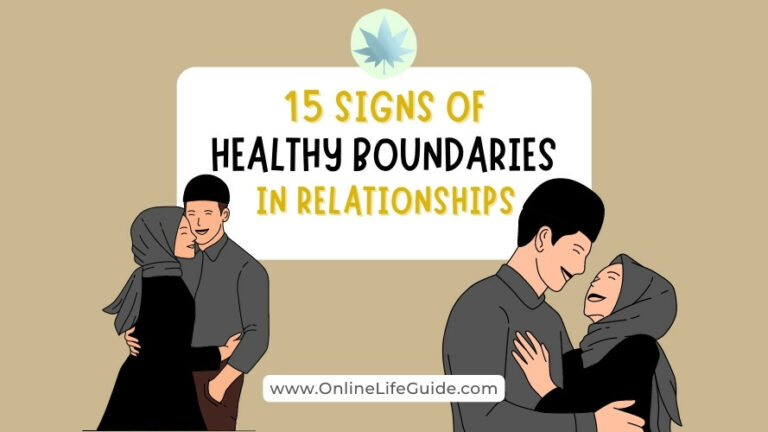
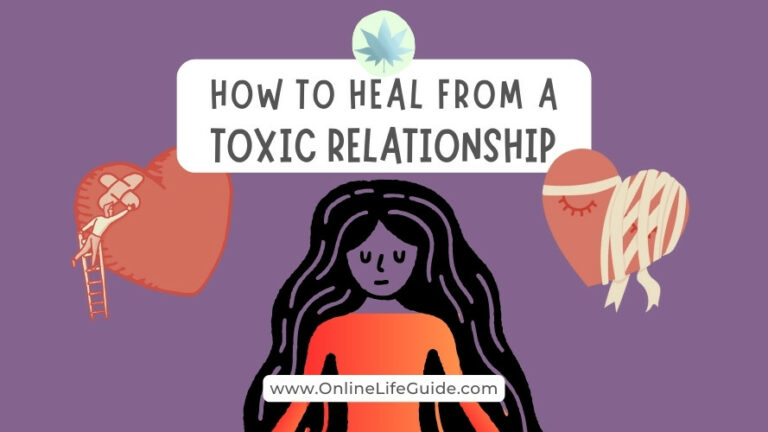

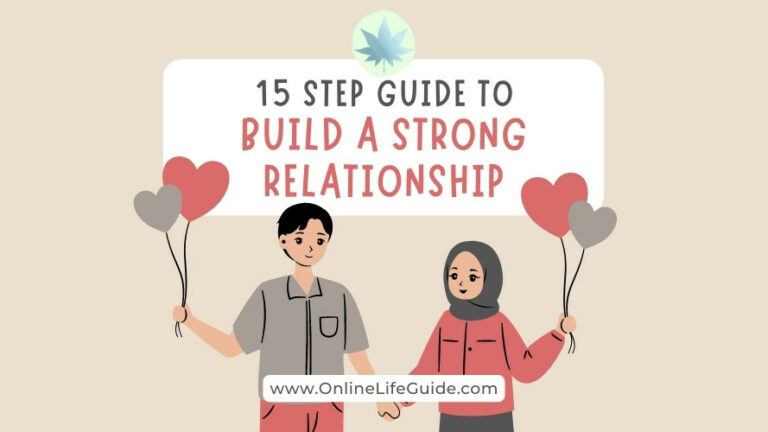
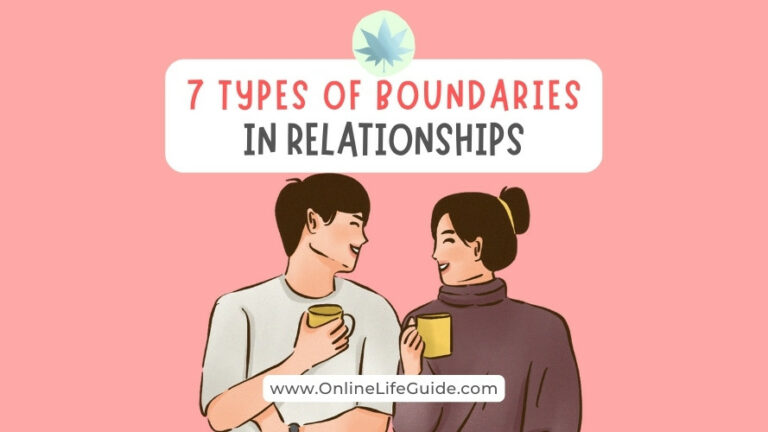
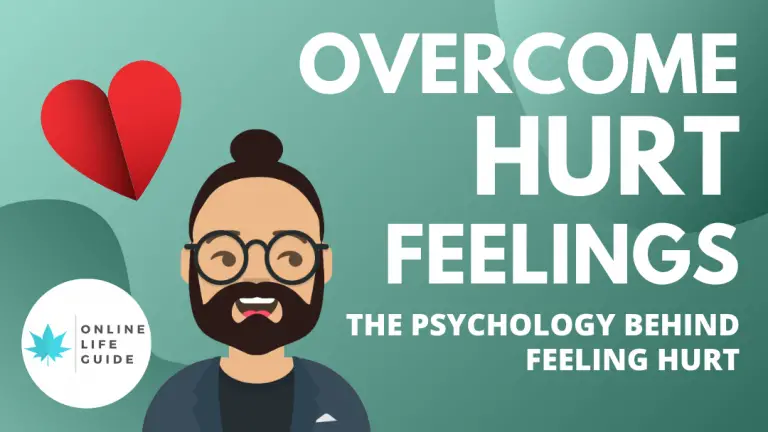

Ahmed!! This is one of the well written best explained blog that I had ever seen, From your way of writing blogs I can clearly see the deep knowledge that you have in this field which is just amazing passion. But I’d like to mention one thing here, that “every manipulator is a human being & every human being is a manipulator” thing is we all live in a humanly atmosphere where we always need something from someone. the extent of need can varied from small to a big(Not Good One)But yes you can satisfy it, as well. But the reason is why they are so successful in that? cause they work on human senses , as you mentioned that just walked out of it, It is Not As Simple as you Said. if you asked someone who was emotionally mentally or physically manipulated they will tell you it’s way more deeper human interactions which is dangerous than any drugs any human ever had.
Hello Ans,
Thank you for the generous appreciation and feedback 🙂 You’ve touched upon 2 good points here, so I’ll break down my reply into 2 parts:
1) I agree that we humans need each other. There is always some level of interdependency and that’s how we are able to operate in this world. I wouldn’t recommend using the word “manipulator” here in its literal meaning because it’s a broad word that can represent many things in different contexts. For example, an Artist manipulates colors and brush strokes to create beautiful art, a singer manipulates his/her vocal cords to create different notes in music. A driver manipulates the car to reach the destination. So in this literal and general sense, we do manipulate our own behaviors and the way we operate to fit in the society in some way. But here, we are specifically talking about “Emotional Manipulation” which has the element of deception and narcissism. It’s gaining personal benefit at potentially the cost of someone’s mental health, where someone is suffering mentally and emotionally. When people call someone a “Manipulator”, this is what they mostly intend to express.
2) The second thing you mentioned is that it’s not as simple to walk away. You are right. Many major decisions in life aren’t simple or easy to make, and takes a lot of strength, courage, thinking, reflecting, and internal working. I never intended to say that it was easy or simple. And yes I have experienced manipulation in my own life and also in the lives of the people I’ve coached. Whatever I say in my articles/guides, it’s my utmost priority that I talk with some level of experience, whether it be through my own life or the lives of people I’ve helped. There is a reason I’ve mentioned “walking away” as the last option when everything else fails. When you have applied all the other options “thoroughly” and consistently yet there is no improvement. Sometimes it’s better to take the extremely bitter pill of walking away for the well-being of both people or else I’ve seen really healthy, productive, and positive people turn into psychiatric patients because of the continued emotional manipulation in their relationships. Sometimes people can’t find enough strength or surety on their own to make the decision, but hearing it from someone else might prove to be the tipping point for them. So if me saying this would give someone that little bit of reassurance that they need, then I’ll consider my job done 🙂
I hope it’s all clear now. Take care!